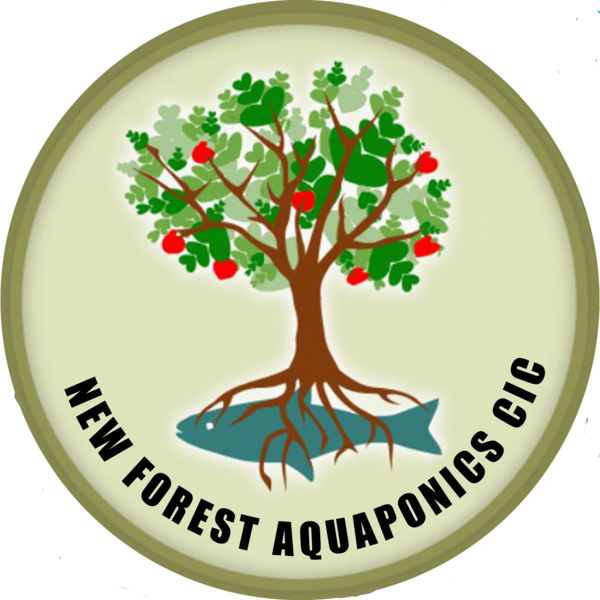This entry was first published on the fundraiser we did December 2022 - January 2023. It raised a little bit of money for which we were very grateful for, but not enough to start the process to buy land through a share offer. But it did allow us time to take part in some courses and that allowed us the insights to find our new home.
All the writings you see about New Forest Aquaponics CIC are my words - Lucie Mann, but they are always about the work we are doing as a family, as a cic and as part of our community.
Dave - the fish farmer of us, is not brilliant with putting pen to paper, or fingers to keyboards, but for those who haven't had a chance to meet him and sit and talk to him I would like to share his thoughts on what we are doing, the space we need to find for our work and why.
**********************************************************************************
.jpg) Dave is in charge of all the plumbing, making water move in amazing ways. Here he is plumbing up an olive drum to be part of a filter.
Dave is in charge of all the plumbing, making water move in amazing ways. Here he is plumbing up an olive drum to be part of a filter.
New Forest Aquaponics CIC has been looking for a new home for some time now. Suitable sites are few and far between, especially in the New Forest.
We believe that aquaponics is the way forward in low impact high yield per metre organic farming with low water use, recycling water and waste to grow even more food.
We have been working with supermarket waste food for a while now and believe we can use the inedible food to farm insects to use as fish food. We will farm black soldier flies, mealworms and earthworms to recycle the nutrients from waste food to produce high quality fish and vegetables and fruit.
The seas are being damaged by massive overfishing and fishing techniques that will ultimately lead to a reduction in fish protein coming from the ocean. This combined with harmful industrial fish farming practices causing massive pollution, disease problems, and genetic contamination of wild stocks combined with the use of industrial fish and fish meal will lead to an end or at the very least a dramatic reduction of aquaculture. Salmon farms around the world are looking at relocating to land based aquaculture but using traditional recirculation technology which still produces wastewater full of polluting nutrients to get rid of.
Aquaponics doesn't produce waste water as it uses all water and nutrients to produce food it also uses a lot less water than traditional farming techniques when water runs away to waste polluting our rivers or evaporates soon after application.
With the prices of fish rocketing due to many factors such as fuel price, quotas and the scarcity of fish in the sea. It makes aquaponics more desirable and profitable
![]()
What are we looking for in a new site?
We need greenhouses preferably bigger than the one we are presently working from as we need significantly more space to grow more fish and vegetables.
Old redundant or greenhouses needing work are ideal. Glass is relatively cheap and easy to find and replace in an old greenhouse. Most older greenhouses in the UK are thought of as redundant and of no economic value as food can be imported for a much lower cost than producing it in the UK.
But for how much longer as the effects of global warming and fuel prices but to name a few problems will continue to make food even more scarce.
Countries like India have already stopped exporting wheat, and as this crisis deepens this situation will only get worse. The UK countryside is full of horses or alpacas, or land bought up for building on reducing the amount of land growing food.
A site without any greenhouses provides us with a number of problems. The first is the cheapest method of providing these is to use polytunnels. But polytunnels use plastic and this plastic has a finatie life unlike glass in a conventional greenhouse . This causes an end of life problem such as found in the spanish food producing areas where thousands of tons of old polytunnel plastic has been dumped or buried and it is now eroding and causing massive problems with micro plastics etc getting into the environment. As greenhouses are destroyed they are getting harder and harder to find.
We also need various outbuildings for different purposes like a fish hatchery, black soldier fly production. A kitchen/processing area, macrobrachium Freshwater shrimp) hatchery, workshop and storage area.
It will be a holistic approach using waste food to produce food for the fish and livestock, this will produce fish to eat and fruit and vegetables. The waste water from the filters is then used to water more food plants and the solids will be used to produce compost.
The power needed to run the pumps should ideally be from renewable sources ie wind and solar/ biogas with battery storage.
………………………………………………………………...
What you can’t truly get from this, is Dave's passion for the task, and the frustration of not being able to get on with our work as we are stuck where we are.
